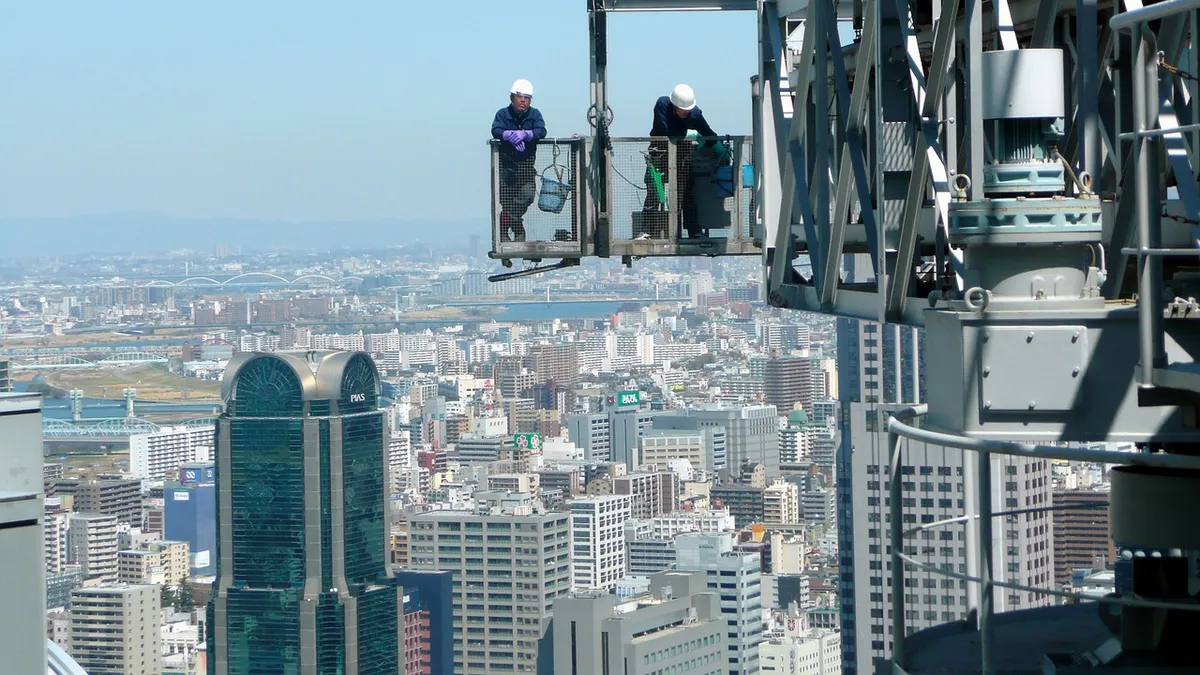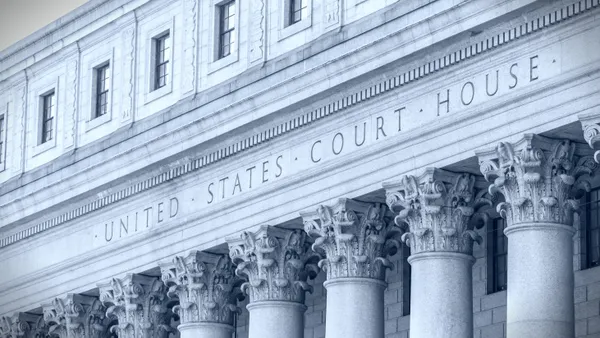Dive Brief:
-
A "little-noticed" provision in the budget bill signed by President Obama this week raised federal U.S. Occupational Safety and Health Administration fines for workplace safety violations for the first time in 25 years, according to The Wall Street Journal. The measure — which brings penalties in line with inflation increases since 1990 — also requires future OSHA and state agency penalty hikes to continue to rise with inflation.
-
OSHA has not yet announced the exact increase, which could reach as much as an 80% bump. The agency must decide on the increase percentage by mid-2016. However, The Journal noted that despite the steep increase in fines, OSHA's penalties pale in comparison to those issued by other federal regulatory agencies.
- Industry experts told The Journal they were "caught by surprise" by the provision, which would likely raise maximum penalties for the most severe violations from $70,000 to $125,000, and other serious violations from $7,000 to $12,500. They noted, however, that the maximum fines could be lower than the 80% increase after a rule-making process.
Dive Insight:
OSHA, along with just a few other federal agencies, was exempted from a 1990 measure requiring agencies to increase penalties along with inflation. Democrats in Congress have tried to get this kind of bill passed for years, but business group opposition has always kept them at bay. However, unlike lawmakers' past efforts, this new provision does not include higher penalties for violations resulting in a worker's death.
Safety advocates welcomed the new measure, as they have criticized the lower penalties for years. Last year, the average fine for an incident resulting in a worker's death was $7,000, and then reduced to $5,050 after settlement talks, according to the AFL-CIO.
Peg Seminario, director of safety and health for the AFL-CIO, said of the new measure, "It's progress... It’s bringing the penalties for worker-safety violations up to date."
On the other hand, some industry representatives have expressed concern with the fine increases, which they said could be a burden on small businesses.
"This has the potential to have a pretty significant impact," said Rob Matuga, of the National Association of Home Builders. "Our housing industry is just making a comeback."
Attention on workplace safety concerns has ramped up recently, as federal and state agencies are cracking down on employers putting their workers in danger. The construction industry would see a huge impact as the result of this kind of OSHA penalty increase, as construction fatalities accounted for 20.6% of all total private industry fatalities last year, according to the BLS. Some safety experts have also blamed the increase in the percentage of Latino construction worker fatalities partly on the lack of severe OSHA penalties deterring dangerous job site practices.













